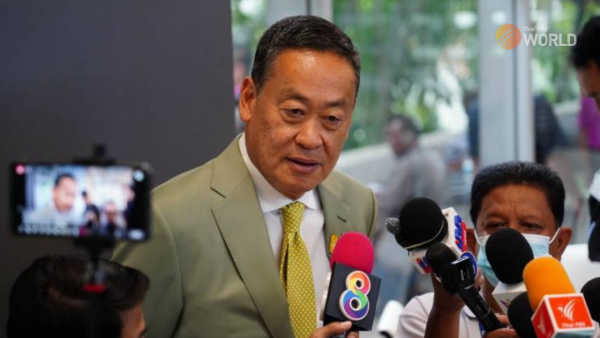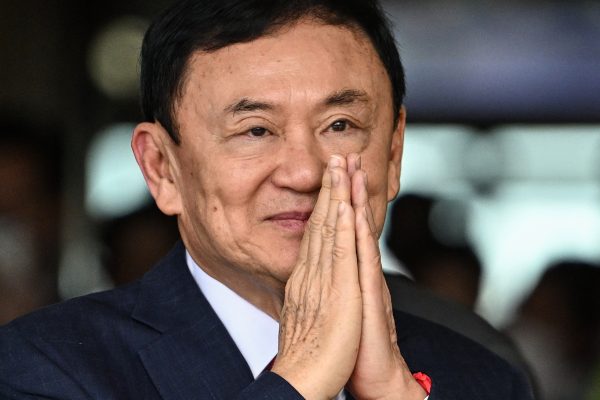Defections, mergers and mudslinging signal start of Thai election countdown

The countdown to Thailand’s general election has well and truly begun, though it remains unclear whether Prime Minister Prayut Chan-o-cha will dissolve the House of Representatives early or allow it to complete its four-year term in March. But political parties are already battling hard to win hearts, minds and votes.
MPs from both the government and opposition camp have stepped up the frequency of visits to their constituencies.
Coalition leaders have formulated populist measures aimed at wooing voters while key opposition figures are promising a better future for their supporters and firing allegations of serious wrongdoing apparently aimed at discrediting those in power.
The collapse of House meetings due to a lack of quorum has become more frequent as lawmakers look ahead to the national vote, scheduled for May 7 unless Prayut calls an early election. Many MPs are opting to skip Friday House meetings in favor of visiting their constituents in the provinces over weekends.
Election preparations
Political parties — large and small, old and new — are gearing up for the nationwide ballot. The larger well-established parties are fortifying their support base with new promises while at the same time undermining their competitors with damaging allegations. Meanwhile, smaller and newer parties are considering mergers and other ways of positioning themselves for political advantage.
Political observers view small parties’ tactic of merging as a bid to survive at the next election, where they will be disadvantaged by a change in the voting system from the last poll.
The upcoming election will use two separate ballots, one to vote for constituency MPs and the other for party-list MPs, instead of the one-ballot system of 2019. Party-list votes will be divided by 100 to find the 100 list MPs that will sit in the 500-member House of Representatives. The number of votes required to win a party-list MP seat is estimated to be 300,000, compared with just 70,000 in the last election. Hence the difficulty for candidates of small parties seeking election.
Merger of Chart Pattana and Kla
The small Chart Pattana Party, set up in 2007, has secured an unofficial merger with the two-year-old Kla Party after the latter’s leader, former finance minister Korn Chatikavanij, and other key figures joined the older party in October.
The Constitution prohibits the merging of political parties with elected MPs during a parliamentary term. Chart Pattana won three MP seats at the 2019 general election — two from the party-list system and one from the constituency vote — while Kla was only founded in June 2020.
Their union under the “Chart Pattana Kla” banner is expected to boost their chances at the next election. Korn’s experience as an economic czar should bolster the party’s economic team while Chart Pattana’s patriarch Suwat Liptapanlop has a strong political base in the Northeast province of Nakhon Ratchasima.
Perhaps inspired by the Chart Pattana-Kla alliance, other small parties are also in talks to partner for the election. But the negotiations are neither quick nor easy.
Abortion is now legal, but why is it so difficult to get one in Thailand?
Thai Sang Thai coupling with Sarng Anakot Thai?
The Thai Sang Thai Party is negotiating with Sarng Anakot Thai for a possible partnership. Both are new parties — the former was founded in March last year while the latter was born in January this year after being renamed and rebranded from an inactive party registered in August 2018.
Both are led by famous political veterans — Thai Sang Thai by former public health minister Sudarat Keyuraphan and Sarng Anakot Thai by former finance minister and economic czar Somkid Jatusripitak.
The two parties have held several rounds of talks but so far failed to reach a deal satisfactory to both sides.
According to media reports, Sudarat agreed to have Somkid as the No 1 prime ministerial candidate of the new party following their merger, while Somkid agreed to let Sudarat become the new party’s leader.
But Thai Sang Thai’s demand that Sudarat’s team manage the new party’s internal affairs was a sticking point. The two parties also failed to agree on who should be secretary-general between Sudarat’s right-hand man Sita Divari and Somkid’s trusted aide Uttama Savanayana, the current leader of Sarng Anakot Thai.
Ruam Thai Sang Chart plus Action Coalition
Speculation is growing that PM Prayut will not be chosen again as PM candidate by the ruling Palang Pracharath Party at the next election.
Instead, Gen Prayut is widely expected to join a new political party, Ruam Thai Sang Chart (United Thai Nation Party), to bid for another term in office. If elected, however, he will only be able to serve until April 2025 under the PM’s eight-year tenure limit inscribed in the Constitution.
Ruam Thai Sang Chart is widely seen as a backup party for Prayut. Although he denies any involvement in the party, many politicians close to him have either joined or are reportedly poised to defect to the party. Ruam Thai Sang Chart was set up in March last year by the PM’s former aide Seksakol Atthawong and is led by former justice minister Pirapan Salirathavibhaga, Prayut’s adviser.
Notable members include several veteran politicians who defected from the ruling coalition’s Democrat Party – including Akanat Promphan who has become secretary-general.
Trairong Suwannakhiri is also expected to join Ruam Thai Sang Chart, after quitting his role as Democrat deputy leader late last month.
Political analysts forecast an imminent merger between Ruam Thai Sang Chart and the Action Coalition Party, which was founded by former Democrat veteran Suthep Thaugsuban to contest the 2019 election but won only five MP seats.
Any such merger might help counter the threat from the opposition Pheu Thai Party, which has topped recent opinion polls and looks set to nominate Paetongtarn Shinawatra, the youngest daughter of ousted prime minister Thaksin, as its PM candidate.
Prayut has resisted pressure from Palang Pracharath politicians to cement his place in the party for the next election by officially becoming a member. Palang Pracharath’s leader, Gen Prawit Wongsuwan, said on Monday that he would not try to prevent Prayut from joining another party, amid reports of a rift between the two old Army comrades.
Prayut now appears to be focused on the Asia-Pacific Economic Cooperation (APEC) Summit due in Bangkok next week (Nov 14-19), when he will be busy hosting world leaders.
The seismic turmoil in Thailand’s political landscape should become clearer after the summit when major political tremors could happen at any minute.
By Thai PBS World’s Political Desk






